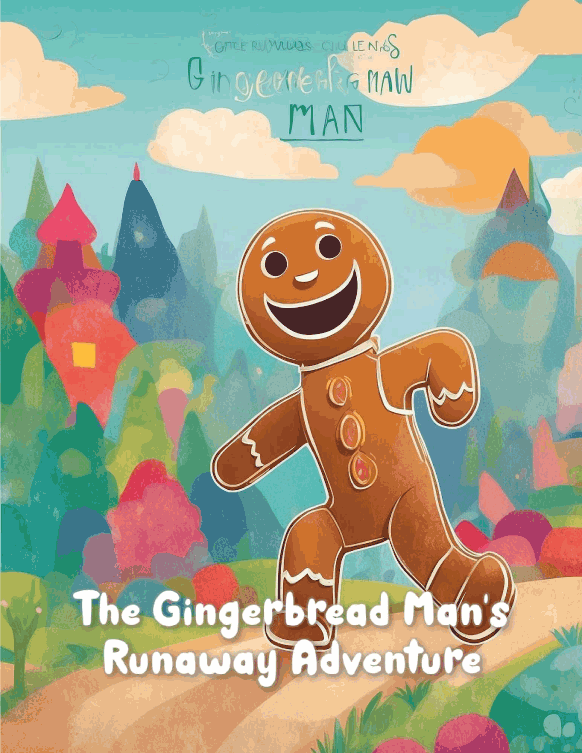Table of contents
Bedtime stories for kids play an essential role in family routines, helping children calm their minds and transition into restful sleep. In today’s fast-paced world, many parents and caregivers need meaningful but efficient ways to connect with children at night. This is where short bedtime stories for kids become invaluable. They offer comfort, spark imagination, and create positive emotional closure at the end of each day. This article explores the value of short bedtime stories for kids, why they matter, how to choose them, and how they can enrich family life even on the busiest evenings.

Why Short Bedtime Stories for Kids Matter
Short bedtime stories for kids are more than quick entertainment; they support emotional bonding, early literacy, and cognitive development. While long narratives have their place, short stories provide effective engagement when time is limited or when children feel particularly tired.
Benefits of Using Short Stories in Busy Routines
- Time Efficiency
Short bedtime stories for kids deliver meaningful content in just a few minutes. This allows families with tight schedules to preserve nighttime reading even when daily routines run late. - Higher Engagement
Younger children often have limited attention spans. Compact narratives maintain focus, making the reading experience enjoyable rather than overwhelming. - Smooth Sleep Transitions
Short, calm, predictable pacing reduces overstimulation. Many bedtime stories for kids intentionally use gentle rhythms that prepare a child’s mind for sleep. - Consistency for Families
When parents can reliably read a story every night, it builds emotional security. Short stories make this consistency realistic.
The Cognitive and Emotional Value of Bedtime Stories for Kids
Short bedtime stories contribute meaningfully to a child’s development. Reading together encourages language acquisition, imagination, social understanding, and emotional intelligence.
Emotional Security and Connection
Children often process their daily emotions through stories. Characters in bedtime stories for kids face challenges, express feelings, and discover solutions—mirroring real childhood experiences. This helps children develop self-regulation and empathy.
Language and Literacy Skills
Short bedtime stories for kids expose children to vocabulary, narrative structure, and sequencing. Even if a story lasts only a few minutes, the linguistic benefits accumulate over time, improving reading readiness.
Stimulating Imagination
Every short tale introduces new worlds, creatures, and lessons. This fosters creativity and sparks storytelling curiosity in young minds.

What Makes a Great Short Bedtime Story for Kids?
Not all children’s stories are equally suited for winding down before sleep. A well-crafted short bedtime story should contain calming themes and concise but impactful narrative arcs.
Key Qualities
- Simple Plot
The storyline should be clear and easy to follow. Good bedtime stories for kids avoid complicated twists that keep children mentally stimulated instead of relaxed. - Gentle Themes
Themes like kindness, friendship, nighttime exploration, or soft adventure soothe the mind. - Positive Resolution
Ending with reassurance helps children close the day with comfort. - Age-Appropriate Language
Vocabulary should match the developmental stage while still offering new words and concepts. - Rhythmic or Repetitive Text
Many of the best short bedtime stories for kids use repetition or calm cadence to create a tranquil reading environment.
Types of Short Bedtime Stories for Kids
Families benefit from having several categories of bedtime stories available, especially when nightly moods vary. Below are popular types suited for busy nights.
1. Mini Fairy Tales
These retell classic motifs in two or three paragraphs. They provide wonder without the length of traditional fairy tales.
2. Animal Friendship Stories
Children love gentle animal characters. Short tales about animal friendships work well as bedtime stories for kids because they blend comfort with imagination.
3. Moral Stories
These offer short lessons about honesty, kindness, patience, and gratitude. They are ideal for reinforcing values in an accessible format.
4. Silly and Lighthearted Stories
Humor relaxes children and can be especially helpful on stressful days.
5. Rhyming Stories
Rhymes have a natural soothing rhythm that makes them excellent choices for nighttime reading.
6. Stories About Nighttime Itself
Stories involving the moon, stars, and bedtime routines help normalize and celebrate going to sleep.

How to Choose the Right Bedtime Stories for Kids
Selecting short bedtime stories for kids requires understanding the child’s interests, emotional needs, and reading habits.
Match the Story to the Child’s Mood
- If the child is restless, choose slower-paced tales.
- If the child wants comfort, pick stories featuring reassurance or affection.
- If the child is excited or silly, select lighthearted bedtime stories for kids that allow gentle laughter before settling down.
Consider Developmental Stage
Toddlers enjoy simple narratives with repetition. Older children prefer short stories with imaginative detail and character growth.
Maintain a Rotating Library
Regularly refreshing your collection keeps bedtime engaging. Rotating different types of bedtime stories for kids ensures variety and continued excitement.
Sample Short Bedtime Stories for Kids
The following examples illustrate the structure and tone that work well for quick evening reads.
1. The Little Star That Learned to Shine
A tiny star lacked confidence because it believed it was too small to glow brightly. One night, the moon encouraged the star to try shining for a lonely child below. The little star glowed with all its might, lighting the sky. It realized that even small lights can brighten the world.
2. Oliver the Sleepy Kitten
Oliver loved exploring all day, but when night came, his paws felt heavy. He curled beside his mother, who told him that dreams were adventures for resting kittens. Oliver fell asleep imagining himself chasing butterflies in a dream meadow.
3. The Friendly Wind
A soft wind wandered through the forest whispering goodnight to the trees. When it reached a tired rabbit, it brushed gently against its fur, reminding the rabbit that rest helps all creatures grow strong. The rabbit yawned and drifted into sleep.
Each of these short stories uses comforting themes, calm pacing, and positive endings—important attributes of effective bedtime stories for kids.

Incorporating Bedtime Stories for Kids into Busy Family Life
It is possible to maintain meaningful nighttime routines even in demanding schedules. Short bedtime stories for kids make this especially manageable.
Create a Predictable Routine
Children benefit from consistency. A simple structure—bath, pajamas, reading, goodnight—helps signal that it is time to unwind.
Use Audiobooks When Necessary
Audiobook versions of short bedtime stories for kids can support families during exceptionally busy nights. While not a full replacement for reading together, they still provide comfort and narrative engagement.
Keep Books Accessible
Store a small basket of short bedtime stories near the child’s bed. This encourages independent interest and makes it easier to read even when the evening is rushed.
Involve Children in Choosing the Story
Giving children a sense of choice increases engagement. Ask them whether they prefer an animal story, a calming story, or a silly one.
Tips for Making Short Bedtime Stories for Kids More Engaging
Enhancing the reading experience deepens the impact of even the shortest bedtime stories.
Use Soft, Steady Voice Tones
Reading with a calm voice helps the child relax. Tempo and rhythm are especially important when using short bedtime stories for kids.
Add Gentle Pauses
Brief pauses encourage the child to think, imagine, and settle into a slower pace.
Make Eye Contact
A few moments of eye contact during reading strengthen connection and trust.
Encourage Predictable Cues
Repeating phrases like “It’s story time” or “Let’s end the day with a story” associates bedtime stories for kids with comfort.
How to Choose the Perfect Bedtime Story for Preschoolers: A Parent’s Guide

How Bedtime Stories for Kids Support Parents and Caregivers
Reading is not only beneficial for children. Short bedtime stories for kids also create manageable, meaningful interactions for adults.
Stress Reduction
Sharing a peaceful story helps caregivers decompress from the day.
Reinforcing Family Culture
Stories passed down or read nightly become family traditions, shaping identity and values.
Strengthened Bonding
Even brief reading moments enhance the emotional relationship between adult and child.
Conclusion:
Short bedtime stories for kids provide powerful opportunities for connection, learning, and emotional security—especially on busy nights. These concise narratives offer comfort, stimulate imagination, and support healthy development while fitting seamlessly into tight schedules. When families incorporate short bedtime stories for kids into nightly routines, they create moments of warmth and consistency that children cherish. Whether through fairy tales, animal adventures, gentle rhymes, or moral lessons, these stories turn even the most hectic evenings into meaningful shared experiences.
🌟 Here are 5 wonderful stories your child will love! 🌟